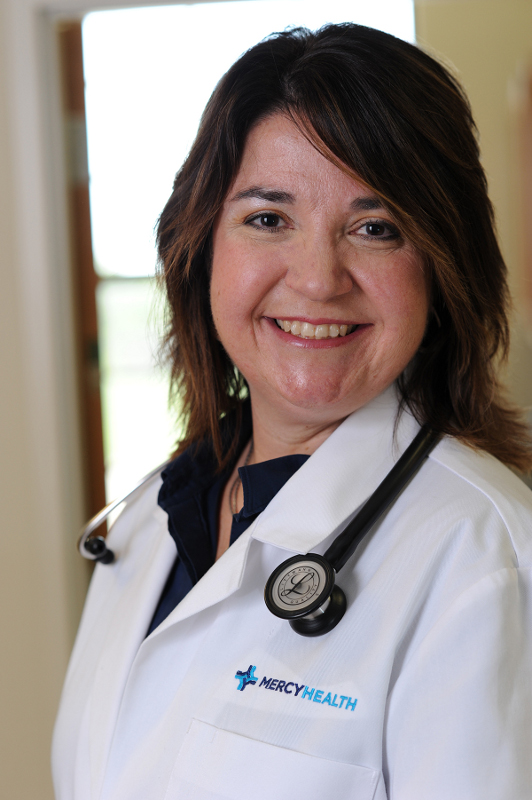Becoming a successful Medicare Shared Savings Program accountable care organization is no simple feat. Preparing for the application process can take months, even years, of work. Then, the organization must improve quality and reduce costs effectively, which takes dedication and innovation on behalf of the healthcare organization.
Even though the process can be arduous, 220 organizations have joined the program, including Mercy Health in Cincinnati, which saw the shared savings program as being worth the time and effort. "We want to continually innovate here at Mercy Health," says Amy Frankowski, MD, senior medical director of Mercy Health Select, the system's MSSP ACO. "We felt the Medicare ACO program would help us prepare ourselves and keep us motivated to try new strategies in our care delivery system."
Here, Dr. Frankowski, shares how Mercy Health built the first Medicare ACO in Cincinnati and the programs that have brought it success.
The building process
Prior to becoming a MSSP ACO, Mercy Health set up a steering committee, made up of senior officials, to look into if becoming an ACO was a
 |
| Nurse Care Coordinator Teaera Roland, MSN, RN, (center) confers with Stacey Miller, MA, and Mike Trombley, MD, at Mercy Health - Deerfield Family Medicine practice in Cincinnati. |
reasonable thing for the system to consider. "They looked at all aspects of what it would mean for our finances, human resources and clinical integration," Dr. Frankowski says. The committee determined the system had the basic tools necessary to address outcomes and costs and manage population health. This process took about 18 months, according to Dr. Frankowski.
After the steering committee determined an ACO was feasible at Mercy Health, the system implemented a 12-month pilot program around care coordination teams to further test its readiness to deliver population health management before securing ACO status through Medicare.
The pilot program involved using nurses as care coordinators to work with 310 high-risk patients in four of the system's patient-centered medical homes. The care coordinators were embedded in the PCMHs in order to better connect with the patients and get them engaged in their care, Dr. Frankowski explains.
Over the 12-month pilot period, Mercy Health saw great results. The system experienced a 51 percent reduction in hospital admissions, a 35 percent reduction in readmissions and a 37 percent reduction in emergency department visits.
With the successful care coordination pilot program under its belt, Mercy Health went on to become a MSSP ACO in July 2012.
Successful ACO programs
Mercy Health Select is considerably larger than the 12-month pilot program, as it covers about 25,000 beneficiaries. The ACO has implemented several programs that have driven quality improvements and cost reductions.
Care coordinators continue to be a major part of Mercy Health's ACO strategy. As part of Mercy Health Select, patients have cell phone access to their care coordinators in order to improve access. Additionally, the care coordinators can work with behavioral health specialists, die
Another major focus of Mercy Health Select is becoming more integrated as a system. Part of that integration involves streamlining patient handoffs and ensuring physicians are working on communicating electronically or verbally when a patient goes through a transition. "They know who the next provider is who is giving the patient care and make sure they have all the information they need," Dr. Frankowski says.
Additionally, primary care physicians and specialists in Mercy Health Select have been increasingly working together to follow evidence-based guidelines in order to achieve quality outcomes and avoid redundancies in care, according to Dr. Frankowski.
Results and the future
After one year in the Medicare Shared Savings Program, Mercy Health Select has managed to improve quality in areas like preventive screenings, immunization rates and care for heart failure patients, according to Dr. Frankowski. Additionally, the data shows a trend of decreased admissions, readmissions and ED visits, though the organization is awaiting last quarter's data to validate that trend.
Moving forward, Dr. Frankowski and the rest of the Mercy Health Select team are looking forward to expanding their ACO efforts. "We're able to take the tools we're using in the MSSP ACO and apply them to other groups that we're caring for," she says. With that in mind, Mercy Health has been developing other programs to implement beyond its MSSP patient population. For instance, one pilot program is a high-touch hospital transition program with nurse care coordinators following a patient for 30 days after discharge to help reduce readmissions further.
Overall, all of the prep work and new program implementation involved in developing Mercy Health Select has paid off for the rest of Mercy Health. "It's been our motivation to keep changing and innovating," Dr. Frankowski says of the shared savings program.
More Articles on Accountable Care Organizations:
100 Accountable Care Organizations to Know
25 Recently Announced ACOs
Committed to the Pioneer ACO Program: An Inside Look at Atrius Health ACO


